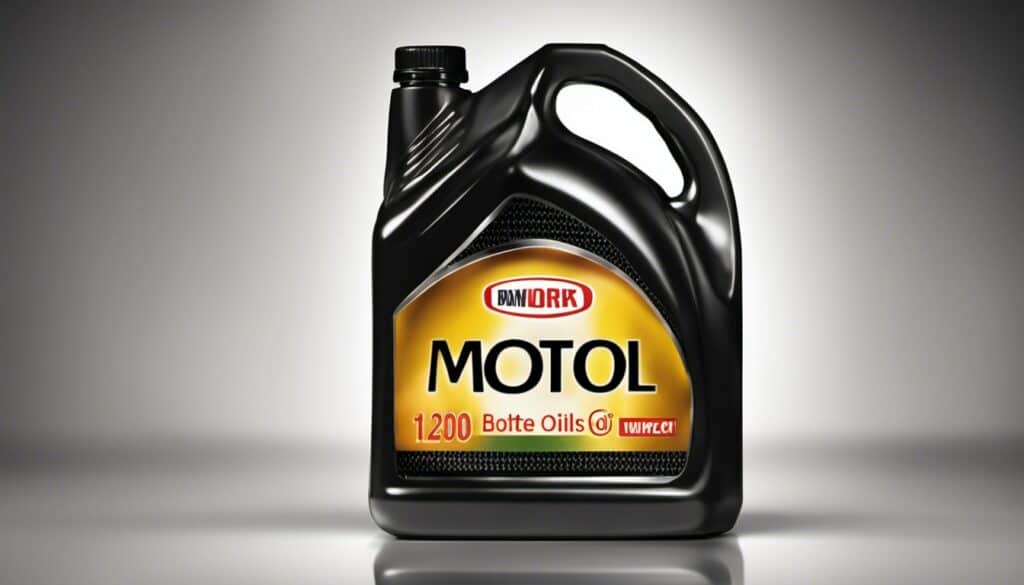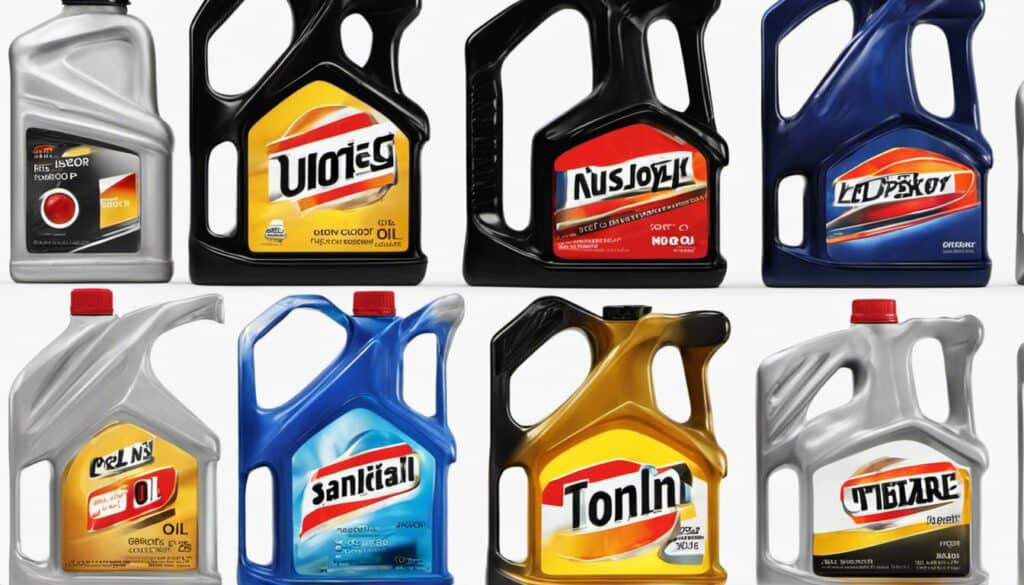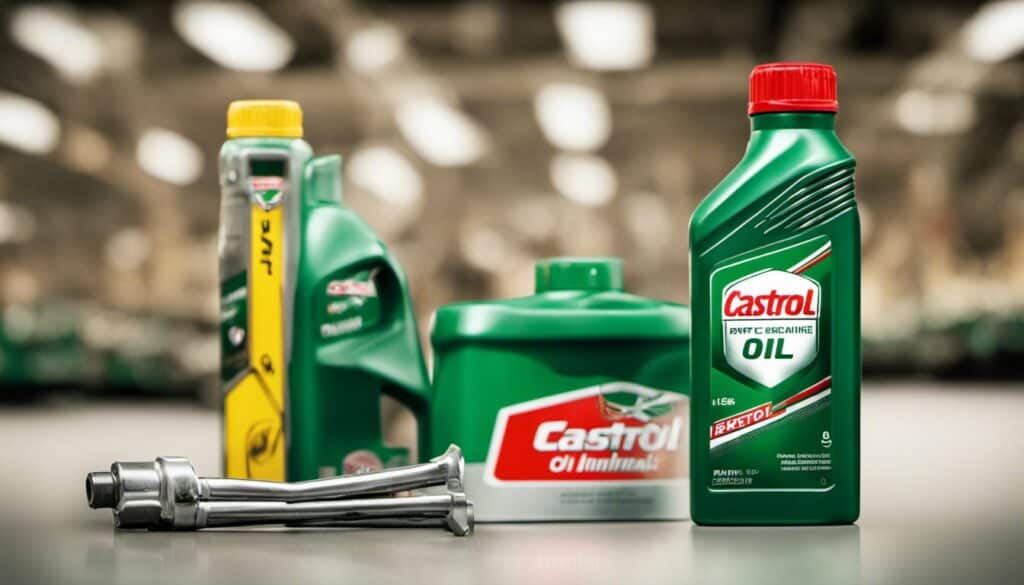Best Engine Oil Brands: Top Picks for Optimal Performance

When it comes to maintaining your car’s engine, choosing the right engine oil is crucial. With so many options available, it can be overwhelming to decide which brand to trust.
The best engine oil brands are those that provide high-quality lubrication and protect your engine from wear and tear. In this article, we will explore some of the top engine oil brands in the market and what makes them stand out.
Understanding engine oil and its role in your car’s performance is essential. Engine oil lubricates the moving parts of your engine and helps to prevent friction and heat buildup. It also cleans the engine by removing dirt and other contaminants.
However, not all engine oils are created equal. There are different types of engine oils, including synthetic, conventional, and blends. Each type has its own benefits and drawbacks, depending on your car’s make and model, driving conditions, and personal preferences.
When it comes to choosing the best engine oil brand, several factors come into play. You need to consider the type of oil, viscosity, and additives used.
You also need to ensure that the oil meets the manufacturer’s specifications for your car. In the following sections, we will explore some of the top engine oil brands, what sets them apart, and what to look for when choosing the right oil for your car.
Key Takeaways
- Choosing the right engine oil is crucial for maintaining your car’s engine health and performance.
- There are different types of engine oils, including synthetic, conventional, and blends, each with its own benefits and drawbacks.
- When choosing the best engine oil brand, consider factors such as the type of oil, viscosity, additives, and manufacturer’s specifications.
Understanding Engine Oil

When it comes to maintaining your car’s engine, one of the most important things you can do is regularly change the oil. Engine oil is essential for lubricating and protecting the moving parts of your engine, reducing friction and preventing wear and tear.
In this section, we’ll take a closer look at what engine oil is, the different types available, and what you need to know to choose the right one for your car.
What is Engine Oil?
Engine oil is a lubricant that helps keep the moving parts of your engine working smoothly. It’s made up of a base oil and additives that are designed to improve its performance.
The base oil can be either mineral or synthetic, and the additives can include detergents, dispersants, anti-wear agents, and viscosity improvers.
Types of Engine Oil
There are several types of engine oil available, including conventional oil, synthetic oil, and synthetic blends. Conventional oil is the most basic type and is made from crude oil.
Synthetic oil, on the other hand, is made from chemicals and is designed to offer better performance and protection. Synthetic blends are a mix of conventional and synthetic oil.
Viscosity
Viscosity is a measure of how thick or thin the oil is. It’s important to choose the right viscosity for your engine, as it affects how well the oil can flow through the engine and provide lubrication.
Viscosity is measured using two numbers, such as 5W-30. The first number (5W) refers to the oil’s viscosity at low temperatures, while the second number (30) refers to its viscosity at high temperatures.
Lubrication
The main purpose of engine oil is to lubricate the moving parts of your engine. This reduces friction and wear and tear, which can help prolong the life of your engine. Engine oil also helps to keep the engine clean by removing dirt and debris, and it can help to prevent rust and corrosion.
Choosing the Right Engine Oil
When choosing the right engine oil for your car, it’s important to consider factors such as the type of engine, the climate you live in, and the manufacturer’s recommendations.
Always check your car’s owner’s manual for guidance on the type of oil to use. Using the wrong type of oil can cause damage to your engine and reduce its lifespan.
In summary, engine oil is a crucial component in maintaining the health of your car’s engine. By understanding the different types of oil available, viscosity, lubrication, and how to choose the right oil for your car, you can help ensure that your engine runs smoothly and lasts for years to come.
Types of Engine Oils

When it comes to choosing the right engine oil for your car, there are several options available in the market. Engine oils can be broadly classified into four types: synthetic oil, conventional oil, synthetic blend oil, and high mileage oil. Each type of engine oil has its own set of benefits and drawbacks that you should consider before making a purchase.
Synthetic Oil
Synthetic oil is a type of engine oil that is made from artificially synthesized chemical compounds. It is designed to offer superior performance and protection to your engine compared to conventional oil.
Synthetic oil is highly resistant to breakdown, which means it lasts longer than conventional oil and can withstand extreme temperatures. It also flows more easily in cold weather, which makes it an ideal choice for those who live in colder climates.
Conventional Oil
Conventional oil, also known as mineral oil, is made from crude oil that is extracted from the ground. It is the most basic type of engine oil and is suitable for older cars that have simple engine designs.
Conventional oil is less expensive than synthetic oil but needs to be changed more frequently. It is also less resistant to breakdown, which means it may not provide the same level of protection to your engine as synthetic oil.
Synthetic Blend Oil
Synthetic blend oil, as the name suggests, is a blend of synthetic and conventional oil. It offers some of the benefits of synthetic oil, such as improved performance and protection, while also being less expensive than full synthetic oil. Synthetic blend oil is suitable for newer cars that have more complex engine designs.
High Mileage Oil
High mileage oil is designed for cars that have over 75,000 miles on the odometer. It contains additives that help to reduce oil consumption, prevent leaks, and protect engine parts that may have worn out over time. High mileage oil is available in both synthetic and conventional formulations.
In conclusion, choosing the right engine oil for your car is essential to keep your engine running smoothly. Consider factors such as your car’s age, mileage, and driving conditions when selecting an engine oil. Always consult your car’s owner manual for the manufacturer’s recommended oil type and change frequency.
Engine Oil Brands

When it comes to choosing the right engine oil for your vehicle, it’s important to consider reputable brands that offer high-quality products. Here are some of the top engine oil brands that you should consider:
Castrol
Castrol is a well-known brand in the motor oil industry, offering a range of high-quality products. Their conventional motor oil, Castrol GTX, is a popular choice among car owners. It provides excellent protection against engine wear and helps to keep your engine clean.
Valvoline
Valvoline is another reputable brand that offers a wide range of lubricant products, including engine oil. Their synthetic blend motor oil is a popular choice among car owners, offering excellent protection against engine wear and deposits.
Mobil
Mobil is a leading brand in the motor oil industry, offering a range of synthetic motor oils that provide excellent engine protection. Their Mobil 1 Extended Performance synthetic motor oil is a popular choice among car owners, offering up to 20,000 miles of guaranteed engine protection.
Pennzoil
Pennzoil is a well-known brand in the motor oil industry, offering a range of high-quality products. Their synthetic motor oil, Pennzoil Platinum, is a popular choice among car owners. It provides excellent protection against engine wear and deposits, and helps to keep your engine clean.
Amsoil
Amsoil is a premium synthetic motor oil brand that offers a range of high-quality products. Their signature series synthetic motor oil is a popular choice among car owners, offering excellent engine protection and extended oil change intervals.
Quaker State
Quaker State is a reputable brand that offers a range of high-quality lubricant products, including engine oil. Their synthetic blend motor oil is a popular choice among car owners, offering excellent engine protection and helping to keep your engine clean.
Acdelco
Acdelco is a well-known brand in the automotive industry, offering a range of high-quality products, including engine oil. Their synthetic blend motor oil is a popular choice among car owners, providing excellent engine protection and helping to keep your engine clean.
STP
STP is a popular brand that offers a range of high-quality automotive products, including engine oil. Their synthetic motor oil is a popular choice among car owners, providing excellent engine protection and helping to keep your engine clean.
When it comes to choosing the best engine oil for your vehicle, it’s important to consider reputable brands that offer high-quality products. These brands offer a range of options to suit different needs and preferences, so you can find the right engine oil for your vehicle.
Factors to Consider When Choosing Engine Oil

When it comes to choosing the right engine oil for your car, there are several factors to keep in mind. Here are some of the most important considerations to make:
Viscosity
Viscosity refers to the thickness of the oil and how easily it flows through the engine. The most common viscosity ratings are 5W-30, 5W-40, 0W-20, 5W-20, 0W-40, 10W-30, and 10W-40. The right viscosity for your car depends on the manufacturer’s recommendations and the climate in which you drive.
Additives
Engine oils contain additives that enhance their performance. Look for oils that contain anti-wear additives, which protect the engine against wear and tear. Other additives, such as detergents and dispersants, help keep the engine clean and lubricated.
Price
Price is always a consideration when choosing engine oil. However, it’s important not to skimp on quality in order to save a few pounds. Cheap oils may not offer the same level of protection as higher-quality oils, and may need to be changed more frequently, which can end up costing more in the long run.
Quality
When it comes to engine oil, quality is key. Look for oils that meet industry standards and have been tested by reputable third-party organizations. High-quality oils offer better performance, mileage, and wear resistance than lower-quality oils.
Remember, the right engine oil for your car depends on a variety of factors, including the make and model of your car, the climate in which you drive, and your driving habits. By considering factors such as viscosity, additives, price, and quality, you can choose an engine oil that will keep your car running smoothly for years to come.
Engine Oil and Vehicle Performance

When it comes to maintaining your vehicle’s performance, engine oil plays a crucial role. Engine oil keeps your engine running smoothly, reduces wear and tear, and improves fuel economy. Choosing the right engine oil for your vehicle can make a significant difference in its overall performance.
Using the right engine oil can improve your vehicle’s performance by reducing friction and wear on engine components. It can also help to keep your engine clean by preventing the buildup of harmful deposits. This can lead to improved fuel economy and reduced emissions.
When selecting an engine oil, it’s important to consider the type of driving you do. If you frequently drive in extreme temperatures or engage in high-performance driving, you may want to consider a synthetic oil that provides better protection against wear and tear.
On the other hand, if you have an older vehicle with high mileage, a high-mileage oil may be a better choice to help reduce oil consumption and extend the life of your engine.
In addition to performance, engine oil can also affect your vehicle’s fuel economy. Using the right oil can help to improve fuel economy by reducing friction and improving engine efficiency.
However, it’s important to note that using an oil with a higher viscosity than recommended by your vehicle’s manufacturer can actually reduce fuel economy.
Overall, choosing the right engine oil is an important part of maintaining your vehicle’s performance and longevity. By selecting an oil that is appropriate for your driving habits and vehicle, you can help to reduce wear and tear, improve fuel economy, and keep your engine running smoothly.
Engine Oil Maintenance

To keep your car running smoothly, it’s important to regularly maintain your engine oil. This means changing the oil and oil filter at appropriate intervals. Here’s what you need to know about engine oil maintenance.
Oil Change
Changing your engine oil is a relatively simple process that you can do yourself or have a professional do for you. Here are the steps:
- Locate the oil drain plug on the bottom of your car’s oil pan.
- Place a container under the drain plug to catch the old oil.
- Remove the drain plug and let the old oil drain out.
- Replace the drain plug and tighten it securely.
- Locate the oil filter and remove it.
- Replace the old oil filter with a new one.
- Add new oil to the engine using the oil cap on top of the engine, making sure not to overfill it.
- Check the oil level with the dipstick and add more oil if necessary.
It’s important to follow the manufacturer’s recommended oil change intervals. This will vary depending on the make and model of your car, as well as the type of oil you use. Check your owner’s manual for specific recommendations.
Oil Filter
The oil filter is an important component of your car’s engine oil system. It removes contaminants from the oil, keeping your engine running smoothly. Here’s what you need to know about oil filters:
- Oil filters should be replaced every time you change your engine oil.
- There are different types of oil filters, including standard, high-efficiency, and extended-life.
- Choose an oil filter that is compatible with your car’s make and model.
- Look for oil filters that have a high filtration efficiency rating.
Regularly changing your engine oil and oil filter is an important part of car maintenance. It can help extend the life of your engine and keep your car running smoothly.
Engine Oil and Engine Health

Your car’s engine is a complex machine that requires proper care and maintenance to run smoothly. One of the most important aspects of engine maintenance is using the right engine oil. Engine oil is responsible for lubricating the engine’s moving parts, reducing friction and wear, and preventing damage.
Using the wrong engine oil can lead to a range of problems, including engine wear, sludge formation, dirt buildup, leaks, and damage. Over time, these issues can cause serious engine damage and even engine failure.
One of the most common problems associated with using the wrong engine oil is sludge formation. Sludge is a thick, sticky substance that forms when engine oil breaks down and combines with dirt and other contaminants. Sludge can clog the engine’s oil passages, leading to reduced oil flow and increased engine wear.
Another issue that can arise from using the wrong engine oil is damage to the engine’s piston rings, gaskets, and seals. These components are essential for maintaining proper compression and preventing oil leaks.
Using the wrong engine oil can cause these components to deteriorate more quickly, leading to engine damage and reduced performance.
Corrosion is another potential issue that can arise from using the wrong engine oil. Over time, engine oil can become contaminated with moisture and other corrosive substances, leading to rust and other forms of corrosion. This can cause damage to the engine’s internal components and reduce its lifespan.
To ensure that your engine stays healthy and runs smoothly, it’s important to choose the right engine oil for your car. Look for engine oils that are formulated to meet the manufacturer’s specifications and provide the necessary protection against wear, sludge, and other issues. Regular oil changes are also essential for maintaining engine health and preventing damage.
Additional Information About Engine Oils

When it comes to choosing the best engine oil for your car, there are a few things you should keep in mind. Engine oils are made up of a variety of components, including base oils, additives, and detergents. The range of engine oils available can vary greatly, so it’s important to choose the right one for your car’s needs.
Most engine oils are made from crude oil, which contains carbon and other impurities. Detergents are added to help clean the engine and prevent contaminants from building up. Diesel engines require different engine oils than petrol engines, so make sure you choose the right one for your car.
Platinum is often used as a catalyst in engine oils to help reduce emissions. Some engine oils also contain antioxidants to help prevent oxidation and extend the life of the oil.
The American Petroleum Institute (API) and the International Lubricant Standardization and Approval Committee (ILSAC) set standards for engine oils. The latest standard is API SN PLUS, which provides improved protection against low-speed pre-ignition (LSPI) in turbocharged gasoline direct injection (TGDI) engines. Other standards include SJ and ILSAC GF-5.
If you’re into racing, you may want to choose an engine oil that’s used by NASCAR or other racing teams. These oils are designed to provide maximum performance and protection under extreme conditions.
Here are a few tips to keep in mind when choosing an engine oil:
- Check your car’s owner manual to see what type of engine oil is recommended.
- Choose an engine oil that’s similar to the one you’re currently using, unless the manufacturer recommends otherwise.
- Consider buying engine oil in a 5-quart bottle to save money and reduce waste.
- Choose an engine oil with good flexibility, so it can perform well in both winter and summer conditions.
- Look for engine oils that have been tested in a laboratory to ensure their quality and performance.
In conclusion, choosing the right engine oil is important for keeping your car running smoothly and efficiently. Take the time to research and choose the best engine oil for your car’s needs.
Frequently Asked Questions
What are the top engine oil brands recommended by experts?
Experts recommend using engine oils from top brands such as Mobil 1, Valvoline, Castrol, Shell, and Pennzoil. These brands have a reputation for producing high-quality oils that provide excellent engine protection and performance.
Which synthetic oil brands have the best performance for cars?
Synthetic oils from Mobil 1, Royal Purple, and Amsoil are known for their exceptional performance in cars. They offer better fuel economy, longer engine life, and improved engine performance compared to conventional oils.
What are the pros and cons of using full synthetic oil?
Full synthetic oils offer better engine protection, improved fuel economy, and longer oil change intervals. However, they are more expensive than conventional oils and may not be necessary for all vehicles.
Are there any motor oil brands to avoid due to poor quality?
While there are many reputable motor oil brands, some brands have a reputation for producing poor quality oils. It’s best to avoid using oils from brands that are not well-known or have a history of producing low-quality products.
What is the best engine oil for petrol cars?
For petrol cars, experts recommend using synthetic oils with a viscosity rating of 5W-30 or 5W-20. Some of the best engine oils for petrol cars include Mobil 1 Extended Performance, Castrol GTX Magnatec, and Valvoline SynPower.
Is there a brand of engine oil that is highly recommended by car enthusiasts?
Car enthusiasts often recommend using Royal Purple engine oil. It’s a high-performance synthetic oil that offers superior engine protection and improved performance. However, it’s more expensive than other synthetic oils.




